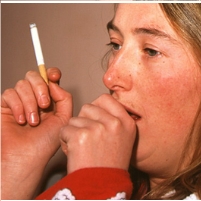Is It Time to Limit Nicotine Levels in Cigarettes?
Monday, June 21, 2010

The Food and Drug Administration should use the expanded powers given to it by Congress and crackdown on the level of nicotine in cigarettes, argues David Kessler, former head of the FDA during the Clinton administration. Kessler, who tried to regulate the cigarette industry in the 1990s, only to be blocked by the U.S. Supreme Court, claims the FDA could “save 200,000 to 300,000 lives a year” if it reduced nicotine quantities to the point where people no longer could become addicted to cigarettes. Although regulators can’t ban cigarettes or nicotine altogether, they can reduce the drug’s quantity in each cigarette from 10 milligrams to less than one.
According to the Centers for Disease Control and Prevention, about 400,000 deaths each year are related to tobacco use, including 38,000 attributed to secondhand smoke.
-Noel Brinkerhoff
FDA Should Use Its Power to Lower Nicotine in Cigarettes, Former Chief Says (by Lyndsey Layton, Washington Post)
- Top Stories
- Unusual News
- Where is the Money Going?
- Controversies
- U.S. and the World
- Appointments and Resignations
- Latest News
- Trump to Stop Deportations If…
- Trump Denounces World Series
- What If China Invaded the United States?
- Donald Trump Has a Mental Health Problem and It Has a Name
- Trump Goes on Renaming Frenzy






Comments